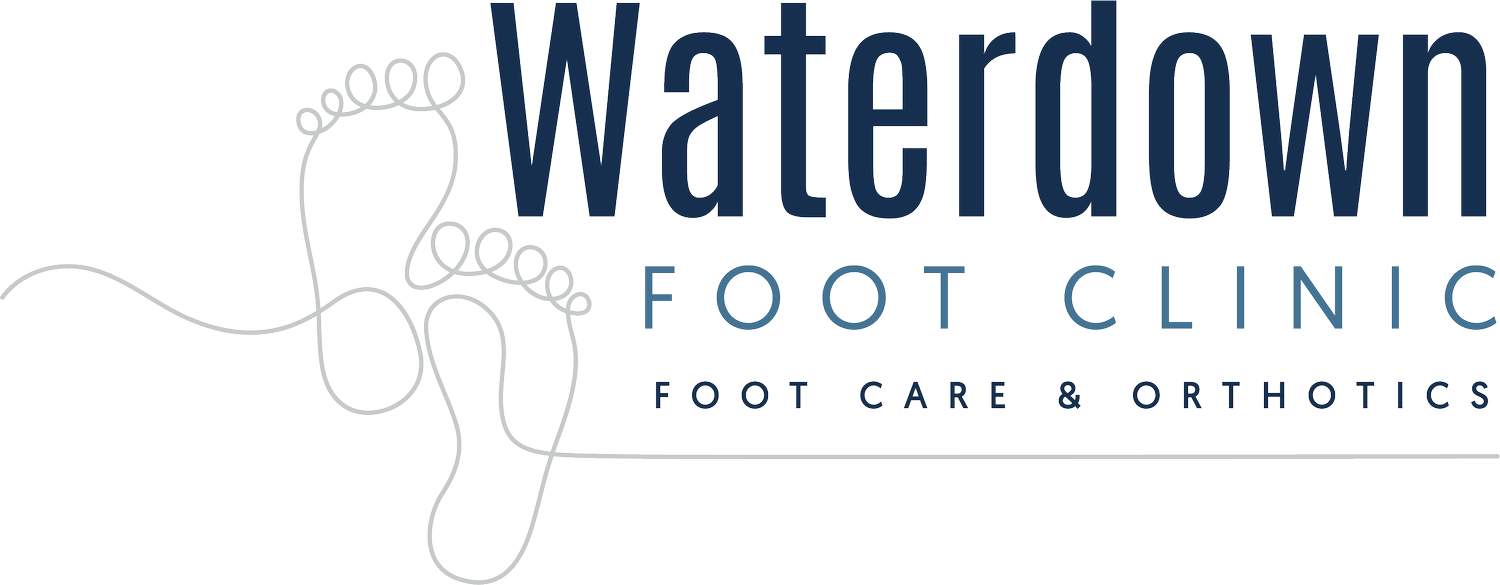Heel SPurs
A heel spur is a bony growth that develops on the underside of the heel bone, often seen on X-rays in people with chronic heel pain. However, in most cases, the pain is not caused by the spur itself, but rather by inflammation of the surrounding soft tissue — typically plantar fasciitis. Many people have heel spurs and feel no pain at all.
Plantar fasciitis is one of the most common causes of heel pain, affecting people of all ages — especially runners, walkers, and those who spend long hours on their feet. It occurs when the plantar fascia, the thick band of tissue along the bottom of your foot, becomes irritated or inflamed. The hallmark symptom is sharp, stabbing heel pain, often worse with your first steps in the morning or after periods of rest.
At Waterdown Foot Clinic, our licensed chiropodists specialize in diagnosing and treating plantar fasciitis using a personalized, evidence-based approach. Your treatment plan may include custom orthotics, stretching and strengthening exercises, taping, and footwear recommendations. Our goal is to relieve your pain, correct the underlying cause, and help you get back to the activities you love — pain free.
Frequently Asked Questions (FAQ)
Q: What causes plantar fasciitis?
A: It’s usually caused by repetitive strain on the plantar fascia from activities like running, prolonged standing, improper footwear, or structural issues such as flat feet or high arches.
Q: How do I know if I have plantar fasciitis?
A: The most common symptom is sharp heel pain, especially with your first steps in the morning or after sitting for a long time. The pain usually improves as you move around but can return after rest.
Q: How is plantar fasciitis diagnosed?
A: Our chiropodists perform a thorough biomechanical assessment, gait analysis, and hands-on exam to determine if your heel pain is due to plantar fasciitis or another cause.
Q: What treatments do you offer?
A: We offer a range of non-invasive treatments, including custom orthotics, shockwave therapy, stretching programs, taping techniques, and recommendations for supportive footwear.
Q: How long does it take to heal?
A: Recovery time varies, but most people improve significantly within a few weeks to months with consistent treatment and proper footwear.
Q: Do I need a referral to book an appointment?
A: No referral is needed. You can book directly with our clinic online or by phone.

